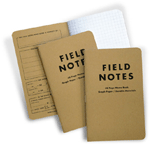by Margaret Atwood
Nan A. Talese
Buy at Powell’s »March 12, 2010
Kamila Shamsie
Richard Russo
Judged by
Kamila Shamsie’s Burnt Shadows is insanely ambitious. It starts with a love scene between a German man and a Japanese woman in Nagasaki on the day of the dropping of the atomic bomb, then somehow ends in Guantanamo Bay, but not until Shamsie first takes on the Partition between India and Pakistan, the end of British colonialism, American C.I.A. agents working in Afghanistan, several iterations of cross-cultural love, and some serious homoerotic tension between British lawyers and their Indian clerks. Much of it is too convenient and unbelievable to work, especially as the book progresses, and as for the end, I can’t really say for certain if it’s set in Guantanamo Bay or not, because I haven’t finished it yet (I have a 17-month-old with a cold, a day job, and a new book to edit—cut me some slack). But it doesn’t really matter. By the end of the first chapter I knew it was going to win.
Let me explain. Shamsie’s prose is often beautiful, and she’s dealing with Big Ideas here. Of course, therein lie many of the problems in this novel, especially as the dialogue becomes increasing didactic (“Because of you, I understand for the first time how nations can applaud when their governments drop a second nuclear bomb,” for example), but I admire what she’s trying to accomplish. And I read this book second, so I knew as soon as I encountered her beautiful descriptions (“An old man walks past with skin so brittle Hiroko thinks of a paper lantern with the figure of a man drawn onto it”) that it was my favorite.
Richard Russo’s That Old Cape Magic is very readable, and filled with moments of irresistible narrative momentum. He opens with his narrator driving around Cape Cod with the ashes of his father in the trunk of his car, soon to be joined by those of his mother. Thing is, he can’t bring himself to dispose of either until he works out some problems with his marriage, most of which stem from parental issues. The symbolism here—the guy can’t let go of his parents and it’s affecting his family—is less than subtle, but the real issue I had with the book is that the parents are the most interesting characters in the book, and—they’re dead! Could the stakes be lower? The only people we care about have been incinerated. If characters can’t stop speaking even when dead (and yes, there are many conversations with the ashes here), I would argue that the author might want to consider writing the book with those characters alive.
 Keep your lists of books, quotes, and sketches in Field Notes Memo Books. Check our exclusive offer for ToB readers.
Keep your lists of books, quotes, and sketches in Field Notes Memo Books. Check our exclusive offer for ToB readers.But Russo tries to wring as much dramatic potential as he can out of this somewhat light fare. I have to give him that. Let me cite slapstick: A wedding party gathers to retrieve the narrator’s father-in-law from the limbs of a small tree (don’t ask), and the ramp on which they’re standing collapses. Madness ensues. Punches are thrown. And let me cite romance: The narrator leaves his wife for much of the book, but returns to her in a touching ending that I must say was rather satisfying. But if all this already sounds like a movie, it basically is. Not because the urn-in-the-truck trope has probably appeared a few dozen times already on TBS this week (starting with Mark Harmon’s 1988 masterpiece Stealing Home), but because the narrator is a screenwriter, and when things get dicey, the prose suddenly begins to appear as a screenplay. Literally. Weird thing is, that part works, but still underscores the feeling I had that things were a bit thin here.
In any case, I did read the whole book. That said, Russo just can’t match Shamsie when it comes to scope and prose. My vote is Burnt Shadows.
Nic Brown’s short story collection, Floodmarkers, was published in 2009 and selected as an Editor’s Choice by the New York Times Book Review. His first novel, Doubles, will be published in July 2010. His fiction has appeared in the Harvard Review, Glimmer Train, and Epoch, among other publications. Known connections to this year’s contenders: “I shouldn’t be involved in Wells’s book.”